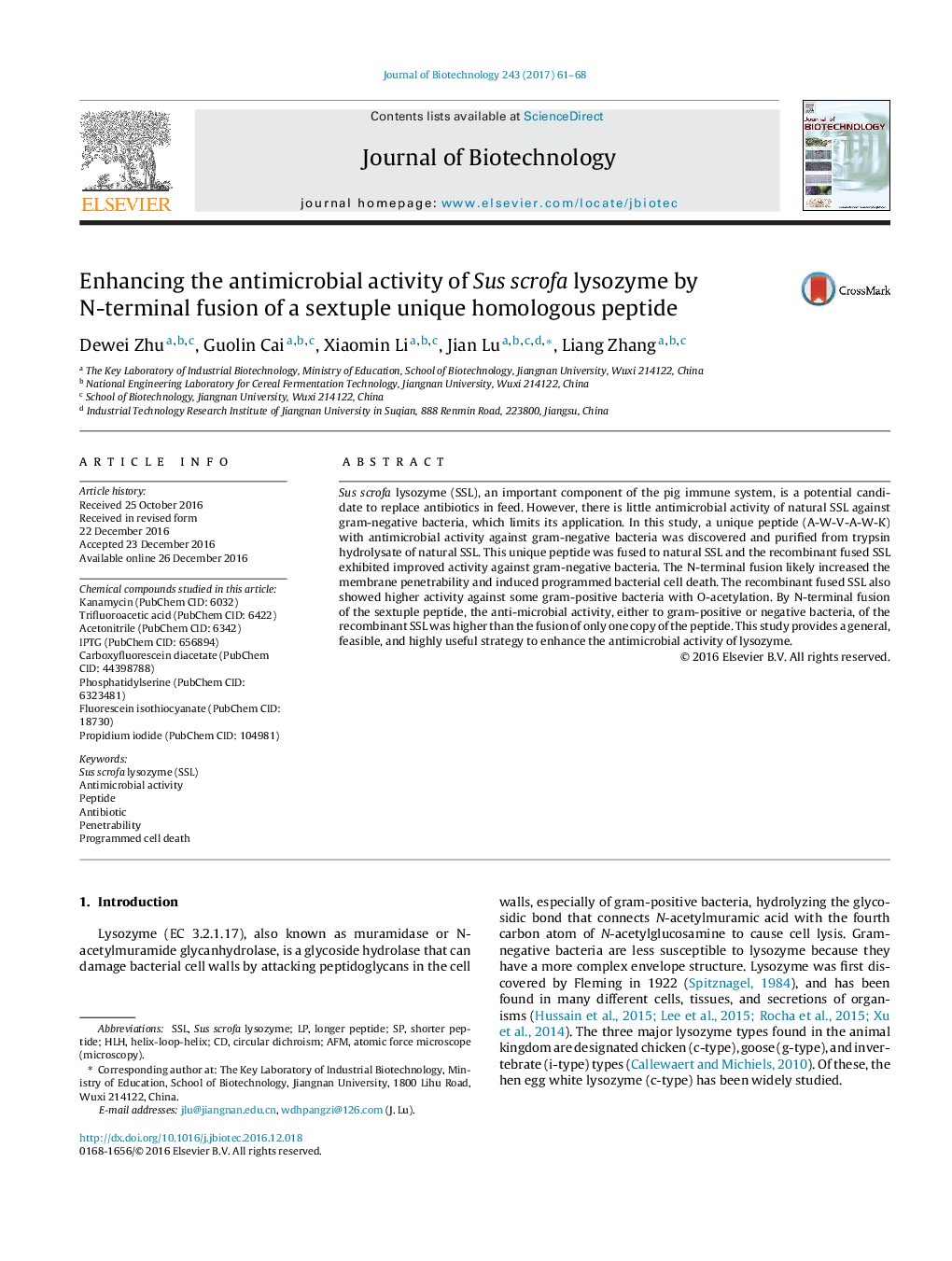| کد مقاله | کد نشریه | سال انتشار | مقاله انگلیسی | نسخه تمام متن |
|---|---|---|---|---|
| 6452148 | 1417001 | 2017 | 8 صفحه PDF | دانلود رایگان |

- Two peptides (LP & SP) with antimicrobial activity against Gram negative bacteria were obtained.
- A six repeating fusion of SP to SSL led to significantly enhanced antimicrobial activities.
- 6SP-SSL may kill bacteria by enhancing membrane penetrability and causing programmed cell death.
Sus scrofa lysozyme (SSL), an important component of the pig immune system, is a potential candidate to replace antibiotics in feed. However, there is little antimicrobial activity of natural SSL against gram-negative bacteria, which limits its application. In this study, a unique peptide (A-W-V-A-W-K) with antimicrobial activity against gram-negative bacteria was discovered and purified from trypsin hydrolysate of natural SSL. This unique peptide was fused to natural SSL and the recombinant fused SSL exhibited improved activity against gram-negative bacteria. The N-terminal fusion likely increased the membrane penetrability and induced programmed bacterial cell death. The recombinant fused SSL also showed higher activity against some gram-positive bacteria with O-acetylation. By N-terminal fusion of the sextuple peptide, the anti-microbial activity, either to gram-positive or negative bacteria, of the recombinant SSL was higher than the fusion of only one copy of the peptide. This study provides a general, feasible, and highly useful strategy to enhance the antimicrobial activity of lysozyme.
Journal: Journal of Biotechnology - Volume 243, 10 February 2017, Pages 61-68